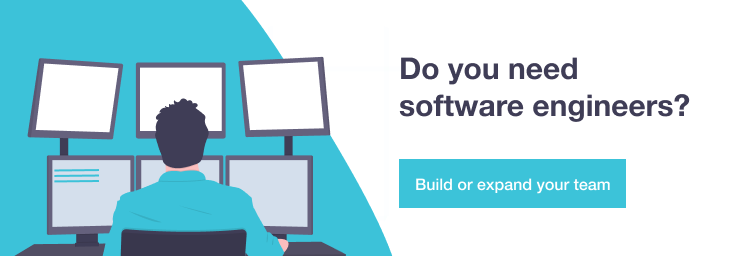Kubernetes, Terraform, Docker, or Ansible? The What, Why and When?
DevOps – the concept
DevOps have become the deal of the day. It takes one from the planning to the delivery and has been emerging as one promising component of the software engineering culture. Simply, it means employing technology in the field of operations using the abundant techniques developers use.
Cloud computing and virtual platforms have already taken the world by storm, what was needed was the need to adopt new services to automate and monitor the in-between processes. Software creation is not as easy as it seems and DevOps facilitate the task by monitoring and managing the various programs ranging to testing, deploying and handling the results.
Innovation has formed the crux of DevOps. It started with the Agile Administration Movement and the Enterprise Systems Management (ESM). In 2009, the term DevOps was coined by Patrick Debois and Andrew “Clay” Shafer after which they organized the first DevOpsDays event in Ghent. DevOps has emerged as a revolution and has made the need for faster and agile processes more convincing due to the various ways in which it increased the development and transition from traditional modes of working.
Thus, to finally bring the services to the customers and not neglecting major processes of the delivery like client interaction and satisfaction, DevOps seeks to obscure the various boundaries between engineers and operation professionals.
The major tricky part about DevOps is the way it is not easily defined or necessarily does not imply doing someone else’s job better, it is using or applying those techniques where they might be needed.
What is Kubernetes?
Kubernetes is an open-source container that makes it easier to host and manage web applications and their life cycles. Kubernetes simply facilitates the efficiency and productivity of the concerned application. It harmonizes the various branches of the work process reducing operational burden.
Kubernetes thus helps developers and operational experts to come closer and work incoherence. With the sharing and efficient division of labor, the overall work burden falls and settles well on the professionals. Hassle-free processes make life better in the work environment naturally.
What are Terraform, Docker and Ansible?
Terraform – A very promising DevOps tool, it was the first multi-cloud immutable platform introduced by HashiCorp. Development processes strengthen and become robust by providing simpler syntax and allowing service providers and in house solutions with various developments to help easy modularity. Infrastructure for development processes and tools like Terraform are easing it.
Docker – Traditional methods and facilities forced firms to go buy excess servers to keep their business moving. Economies of scale had to be preserved in the process. Then, Docker was introduced which brought with it the option of neatly stacked virtual containers, rather whole environments. Due to the least compatibility issues, applications can run wherever one wants without causing compatibility hurdles. Resources are, however, also shared directly with the host. Thus multiple Docker containers may be used for a few virtual machines.
Ansible – Again open-source, Ansible is an IT automation engine system. IT environments can be taken care of and automated to manage tasks. A whole range of devices, networks, and firewalls can work in automation with the help of Ansible. Ansible is smarter and thus does not need commands to execute operations, it works voluntarily. Its requirement sets are also easily accessible as it only needs basic, important operating languages like Python or PowerShell.

What are the differences between Kubernetes, Terraform, Docker and Ansible?
DevOps and relevant tools work with the same idea of developing and innovating simultaneously, but the differences are important to understand too.
- Ansible is a powerful server and a configuration management tool, while Docker gives more flexibility in terms of providing modern and innovative options. The outreach of DevOps has made giant strides and Kubernetes being one of the important tools that have provided for portability, extensions, and self-smart processes most importantly. Terraform is the easiest to understand.
- Docker is particularly a container technology while Ansible and Kubernetes are tools for configuration management.
- Ansible works with Python while Docker and Kubernetes work with Go.
- Also, while Ansible and Docker are very user-friendly and easy to manage Kubernetes needs a lot of preparations in terms of planning and manual installation.
- Docker has multi-components, while Ansible works well with front end developers. Moreover, Kubernetes is much more modern in its applications.
- Kubernetes thus remains a complex mechanism to work upon nonetheless very helpful however Docker is appealing in the way it handles most of the work.
Which tool can be best utilized in which situations?
Ansible – Automation is the most efficient with Ansible and thus this tool finds major employment in cloud provisioning, applications, orchestrations, and management. It also helps write applications in custom settings. It finds maximum usage in multi deployment and collaborations of various tools securely and safely. Ansible is agentless, simple yet powerful. While on the problem side, it does not have really good compatibility.
Docker – It helps more efficiently and analyzing and fixing bugs while the lightweight containers facilitate the creation, deployment, and management of systems. Docker most importantly standardizes the environment to create better results. Docker is testable and has a rapid system of built-up and integration. However, it exhibits sync problems and also shows unreliable networking systems.
Terraform – Mostly simple and easy to install, Terraform aligns exactly the way one wants it. It learns from what you think to do with the infrastructure. All coding principles configure themselves with this tool and thus it is gaining prominence in DevOps mechanism discussions in recent years.

When to use Kubernetes?
Kubernetes is a highly complex and modular system, needs pre-planning and also its designs are easily replaceable with one another, in simpler words they can be swapped. Most of the developers prefer it while some of its cons may feature in the course like poor workflow and a steep learning curve, etc. Moreover, Kubernetes is backed by Google and has the right abstractions about it.





